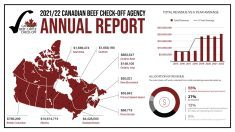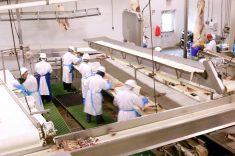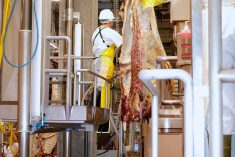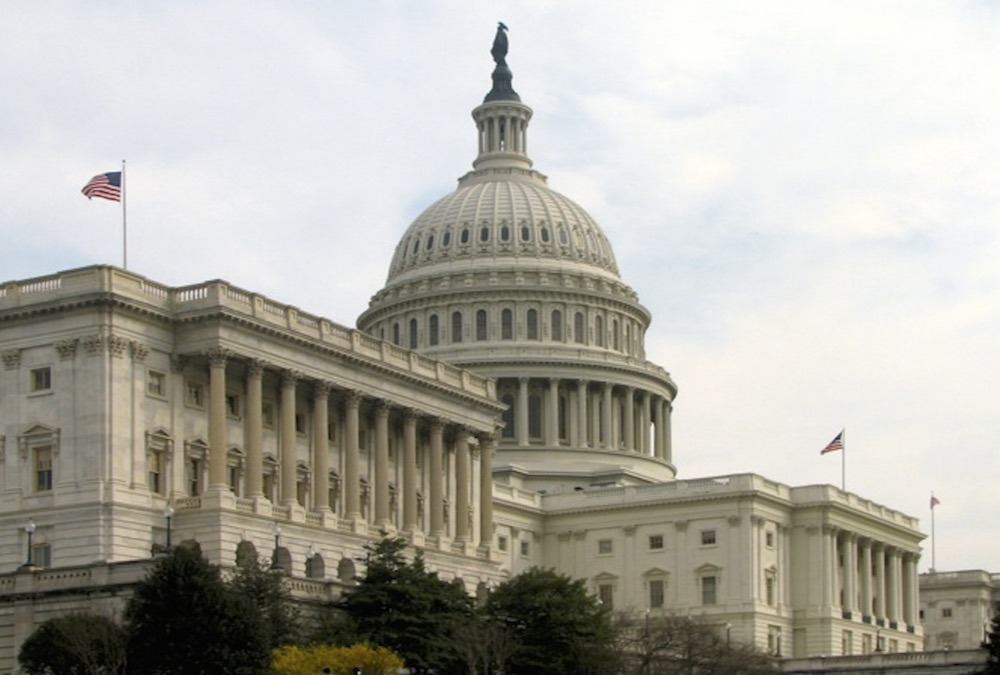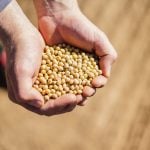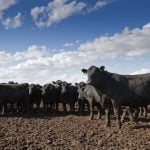While free market cattlemen and their associations operate similarly, whether Canadian or American, there are some differences, especially with regard to their government.
While some Canadian associations can receive both government funds and government engagement in promoting and defending the beef industry, it’s different in America. No government funds go to any beef industry trade association. And, instead of the involvement/engagement Canadian cattlemen can get from government officials, U.S. trade associations spend part of their time lobbying government agencies, part of the time trying to work out compliance issues and part of the time fighting them outright.
Read Also

Building demand together: The impact of Canada’s beef import levy
The beef import levy has become a central tool for ensuring balance in Canada’s beef industry
For our state beef councils and the national Cattlemen’s Beef Board (CBB), the mechanism is different. Congressional legislation authorized a referendum on a mandatory checkoff to replace the long-time voluntary checkoff in 1985. Cattlemen nationwide voted it in. It used congressional authority to require cattlemen to pay the checkoff ($1) on every sale. No government funds are involved, as all costs involved in supervising the Beef Board’s collection and spending is reimbursed from the checkoff. The cattlemen and cattlewomen on the Beef Board make all the spending decisions. Naturally, the mandatory checkoff collected lots more money than the voluntary one had.
The cattle people who designed the new checkoff wanted to make use of the long-time organizations and the research, promotion and education institutional knowledge they had already paid for. So they made the existing state beef councils the collection organizations for the new checkoff, just as they had for the voluntary checkoff. The Beef Industry Council (BIC) of the National Livestock & Meat Board, having done national checkoff work and been the national partner of the state beef councils for decades, was included in the structure.
But here is where, “No good deed goes unpunished” begins. In the ’90s, cattlemen became frustrated with having three separate boards to fund and educate separately on key issues: the National Cattlemen’s Association, the Beef Industry Council and the U.S. Meat Export Foundation, plus the CBB. Industry stalwarts trekked to three sets of annual meetings, mid-year meetings and committee meetings. It took time away from their home operations and it meant they were paying the costs for operating three different organizations. Often, the same information had to be repeated for three separate boards in order to resolve industry-wide issues.
Long discussions were held and, eventually, the National Cattlemen’s Association and the Beef Industry Council (BIC) merged into the National Cattlemen’s Beef Association (NCBA), while the Meat Export Foundation elected to stay aligned but separate.
One thing had to be worked out and scrupulously observed. According to U.S. law, beef checkoff money cannot be used for lobbying activity. So NCBA had to install a firewall between its lobbying activities — paid for with dues money — and the checkoff activities — funded by checkoff funds. A division of USDA also monitors accounting, and audits are conducted to recheck things.
So the merged BIC and NCBA was one larger organization, with two divisions. The former BIC, with all the experience and expertise of doing national beef promotion since the ’60s, was expected to, and did, win most of the contracts for accomplishing the research, promotion, education and advertising.
This industry reorganization and streamlining better co-ordinated and efficiently managed beef industry issues.
But some folks are naturally jealous, some trust not their fellow men, some can’t accept that their views are not the views of the majority.
So R-CALF and an even smaller group, the Organization for Competitive Markets (OCM) have spent recent years trying to find some way to destroy the national beef checkoff. Both groups profess to believe that, even with government supervision, numerous audits, end-of-the-year financial resolution and 21st century computing power, their fellow cattlemen are stealing money from the checkoff to spend on lobbying the government.
But that is not the end — it is the beginning. From the lobbying standpoint, both groups hold that those “stolen” funds are used by NCBA’s dues division to promote free market agriculture. Horrors!
That means only a small minority of agricultural groups in the U.S. will be left demanding the government break up the big feedyards, the big packers, the supermarket chains, fast food chains and big ranches.
From the beef promotion standpoint, both groups are furious that beef promotion and advertising promotes “beef.” Horrors again!
Always cognizant of proportion, perspective and the greater good, these folks would rather have no checkoff at all to promote beef than promote beef sold in the U.S. that has a very small proportion of Canadian cattle or beef in it or beef from Mexican-origin feeder cattle.
The fact that American consumers could care less about origin if the quality and safety is top notch — as proven by both repeated surveys and a multi-hundred-million-dollar disastrous experiment with mCOOL — fazes these folks not the least. They still hold that only “U.S. beef” should be allowed to be sold or promoted with checkoff funds in America.
So R-CALF has sued USDA for allowing the checkoff. OCM has partnered with an avowed adversary of animal agriculture, the Humane Society of the U.S., suing checkoffs, petitioning for and examining internal documents through the Freedom of Information Act, trying to find some way to destroy America’s cattlemen voted-in, cattlemen-run, cattlemen-funded beef promotion group.


